10 professional athletes who use marijuana

- Marijuana is growing in popularity and legality for athletes.
- The NBA and NFL loosened their policies on disciplining players for marijuana use in recent years.
Cannabis use among athletes has sparked debate on health issues and social values
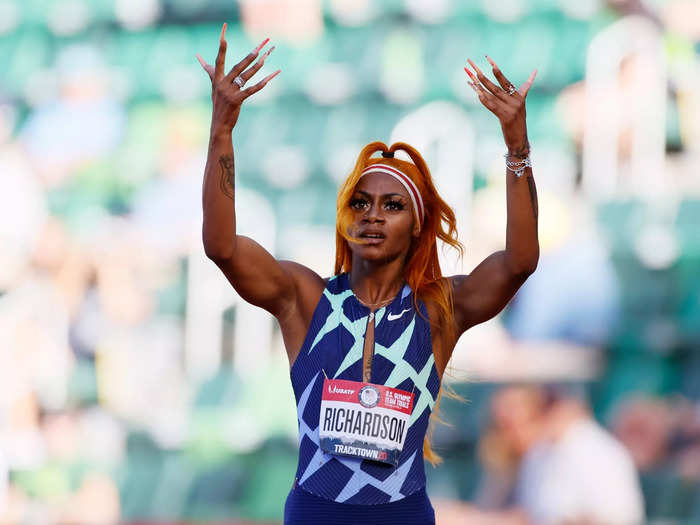
Whether athletes should be allowed to use cannabis has been an ongoing debate in sports for decades.
In recent years, the NFL has reduced the punishment for players who test positive for cannabis, and the NBA has stopped testing for the drug altogether.
Still, there are instances in which athletes faced harsh consequences for using the drug. This summer, Team USA Olympic sprinter Sha'Carri Richardson was banned from competing in the Tokyo Olympics for testing positive for marijuana after the US trials.
Richardson was banned on the basis that marijuana could be considered a "performing-enhancing drug." Experts say the science is blurry, as Insider's Gabby Landsverk previously reported. Cannabis does not offer the same muscle-related or mental advantages that anabolic steroids, amphetamines, or Adderall can give athletes, nor is there definitive evidence it slows them down, Landsverk reported.
Some experts believe cannabis, in the form of CBD, could help relieve pain and promote muscle recovery. CBD is a non-psychoactive component of cannabis that has been exempted from the doping ban since 2019.
There is no real research to confirm the benefits of CBD in physical recovery. However, many researchers believe that given the the number of endocannabinoids in the body — particularly in the skin — it makes sense that CBD, which binds to endocannabinoids, could be a helpful agent in muscle recovery.
Some athletes have been open about using the drug, while others have only been caught with it
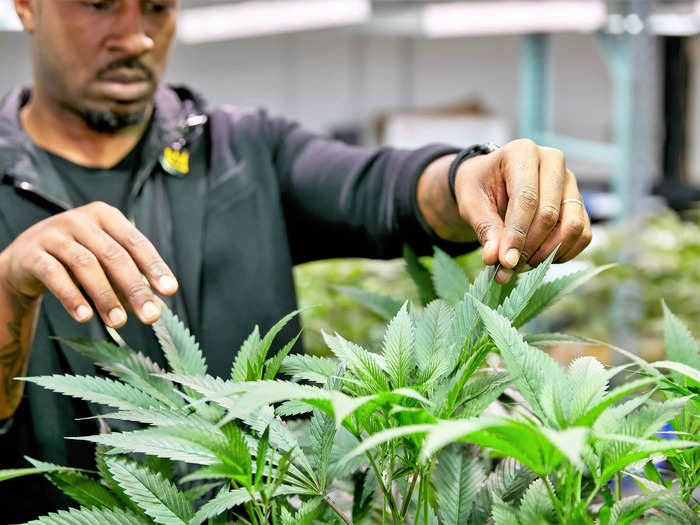
A number of high-profile athletes have said cannabis helped in their own wellness routines.
The NFL has also invested $1 million into researching CBD as a holistic painkiller to replace other drugs like Toradol, a prescription painkiller that is in the same family as ibuprofen but stronger. (Last year, the NFL Players Association asked the league to limit prescribing Toradol to injured players, saying it carries a risk of "major bleeding.")
We compiled a list of athletes who have publicly stated that they use cannabis or have invested their own money in companies that produce and sell the drug for recreational or medicinal use.
This list omits athletes who have simply been caught using the drug, whether through a league drug test or by law enforcement.
UFC fighter Conor McGregor smoked a blunt on Instagram

Conor McGregor posted an Instagram story of him smoking a blunt — marijuana wrapped in tobacco leaf, usually from a cigar — in August, after his loss to Dustin Poirier at UFC 264.
"A big blunt. Yeah, look at the neck on me! I'm getting jacked," McGregor said in the video.
The 33-year-old UFC champion also has his own line of cannabis-based recovery products called TIDL Sport. His line of products includes CBD oils and creams.
NFL Hall of Famer Calvin Johnson said he smoked cannabis after most games, and now owns his own marijuana business
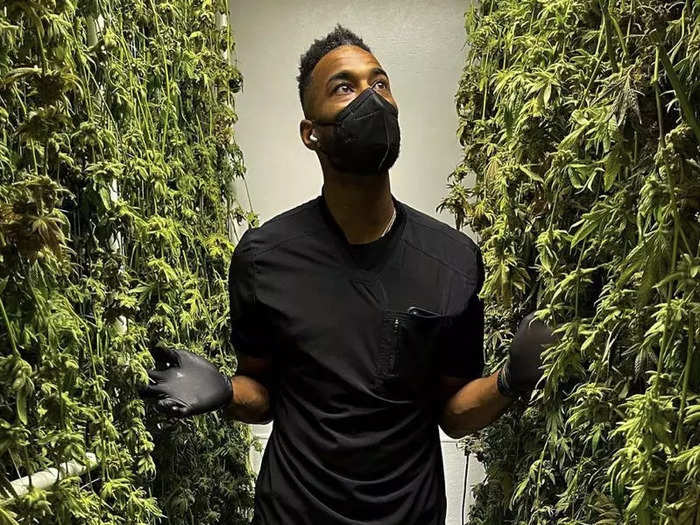
Calvin Johnson launched his own cannabis brand called Primitiv in 2021, which sells the drug in its plant form, THC-infused edibles, and concentrated THC wax for recreational use in the state of Michigan. Johnson told Insider that the business venture was inspired by his frequent marijuana use during his nine-year NFL career.
The 36-year-old Hall of Famer told Insider that he started smoking marijuana during his college career at Georgia Tech, and then smoked after every home game he played in the NFL.
Johnson said his teammates and players from other teams would often join his post-game smoking sessions, and claimed that the majority of NFL players have used cannabis in some capacity.
"The majority of the locker rooms, if they're not currently participating, they have smoked or used cannabis in some application," Johnson said. "If we're hanging, that was our preferred vice. I'm not a big drinker at all, but if we were hanging and it was a couple of fellas, that would be our first choice."
Former NFL star Michael Vick said he used marijuana, but it hurt his focus and motivation
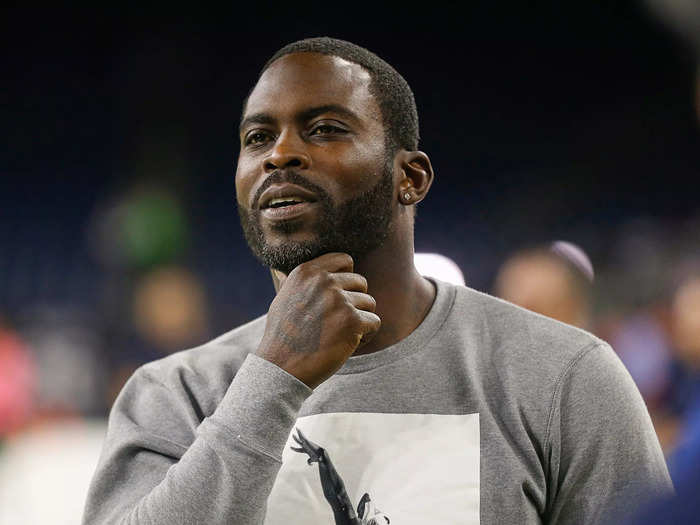
Michael Vick is one of the few athletes who has been open about his cannabis use while still playing professionally but described his experience negatively.
Vick was cited for marijuana possession at a Miami airport in 2007, and said in a 2010 radio interview that he used the drug regularly.
"Everything that I was doing off the field, in regards to the marijuana and everything else, it didn't slow me down, but it definitely slowed my developmental process," Vick said in his interview with Atlanta's "Mayhem in the AM" on 790 the Zone, according to The New York Times in 2010. "It made me lazy in a sense and I wasn't really focused and didn't take things seriously."
If used in excess, cannabis can have side effects like disorientation and rapid heart rate, but it is possible to safely use cannabis during exercise, Insider previously reported.
UFC fighters Nate Diaz and Nick Diaz co-own their own cannabis brand
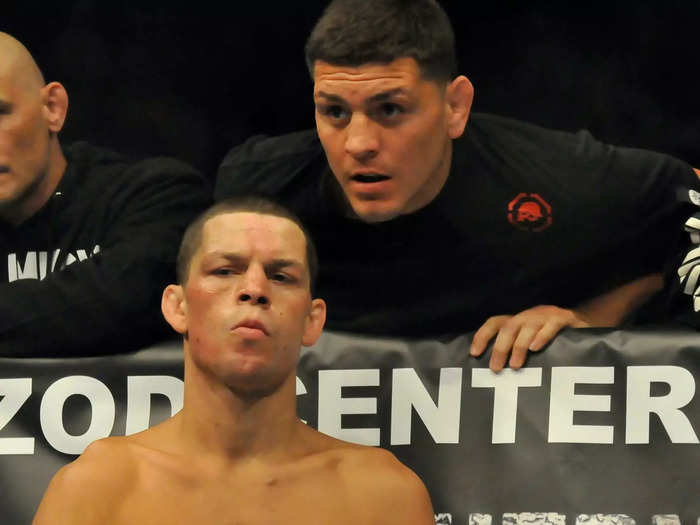
Two of the UFC's biggest stars, Nick Diaz and his brother, Nate Diaz, have made marijuana part of their legacy in recent years.
The two brothers started their own cannabis brand called Kill_4209, in 2021, but it is not available for purchase yet. The brothers also founded their own brand of CBD products called Game Up Nutrition, in 2017, which mostly includes CBD products that are available for purchase nationwide.
But before the two brothers got involved with the drug in business ventures, Nick Diaz received a five-year suspension from the UFC in 2015 for testing positive for marijuana, which was the third marijuana-related offense of his career.
After the UFC changed its policy to not punish fighters for using the drug on non-fight days, Nate Diaz celebrated by smoking marijuana at the UFC 263 press conference in June. It was later reported by ESPN that he was smoking his own brand, Kill_4209.
Marshawn Lynch owns a cannabis brand and wants to use it to "raise Black and brown communities"
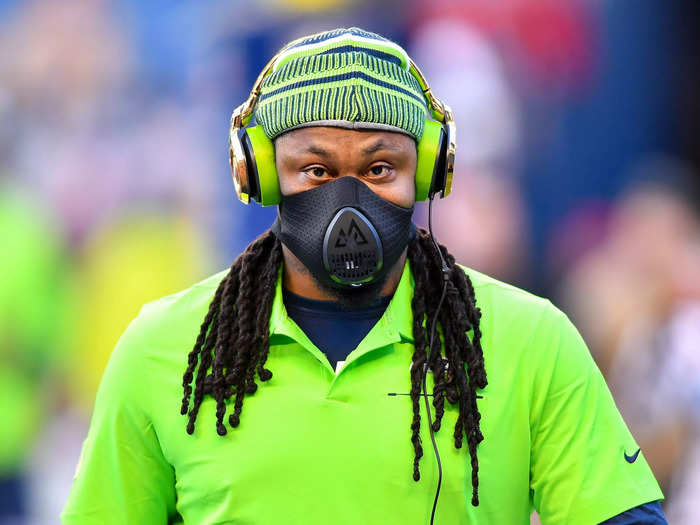
Marshawn Lynch said that marijuana was a big part of his life when he launched his own cannabis brand called Dodi Blunts, in February 2021. The brand sells pre-rolled blunts available for purchase in California.
The 35-year-old former NFL running back said in February that the cannabis industry "has the ability to raise up Black and brown communities," and he aims to make diversity a priority by hiring and promoting people of color within his company.
Former NBA star J.R. Smith has been a political advocate for cannabis legalization and promoted it before an NBA Finals game
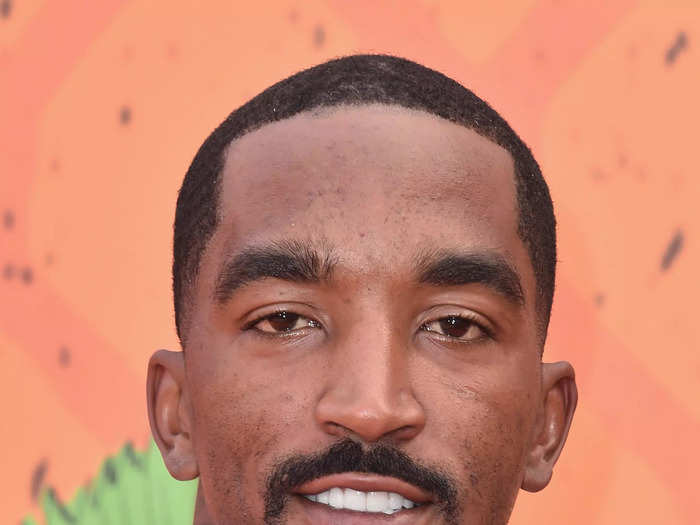
J.R. Smith became an advocate for marijuana legalization in New York in 2019.
The 36-year-old former NBA point guard joined his former New York Knicks teammate Al Harrington to lobby for marijuana legalization in a meeting with New York lawmakers in 2019, Harrington told the New York Post at the time.
Smith was suspended for the first five games of the 2013-14 NBA season after testing positive for marijuana. Six years later, after lobbying in New York, he promoted Harrington's marijuana company, Viola, ahead of Game 4 of the 2020 NBA Finals — his last NBA appearance.
NBA Hall of Famer Kareem Abdul-Jabbar said he used to only associate with people who smoked cannabis
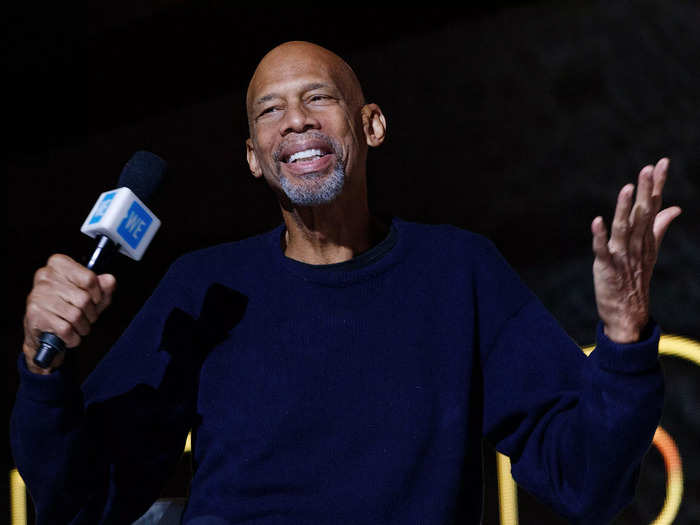
Kareem Abdul-Jabbar has scored more points than any other player in NBA history. He also said, in his 1983 autobiography "Giant Steps," that he's smoked more than his fair share of marijuana.
"I've certainly smoked more than my quota of weed. For a while there at UCLA I didn't want to hang out with anyone who didn't smoke reefer, but that was as parochial a view of the world as any uptight antidoper's, and I got over it quickly," the 74-year-old NBA Hall of Famer wrote.
When Abdul-Jabbar was arrested for marijuana possession at a Toronto airport in 2002, he told authorities he used it to cope with migraines and nausea, according to the New York Times. Now, 20 years later, cannabis is legal for medical and recreational use across Canada.
NFL Hall of Famer Randy Moss was one of the first NFL players to open up about using marijuana while he was still playing
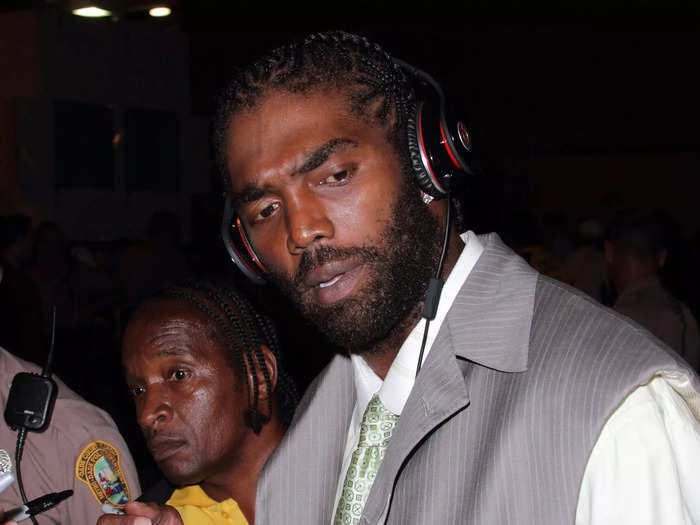
Randy Moss was one of the first big NFL stars to publicly admit, while in the prime of his career, that he used marijuana.
During a 2005 episode of HBO's "Real Sports with Bryant Gumbel," the now-44-year-old NFL Hall of Famer said he used marijuana since entering the NFL in 1998.
Moss has since criticized the NFL for its policy that tests and punishes players for marijuana use, and has said the league should end the policy in an interview with Sports Illustrated in 2016 and during an appearance on ESPN's "First Take" in 2019.
NBA Hall of Famer Allen Iverson says he's used marijuana for years and owns his own brand
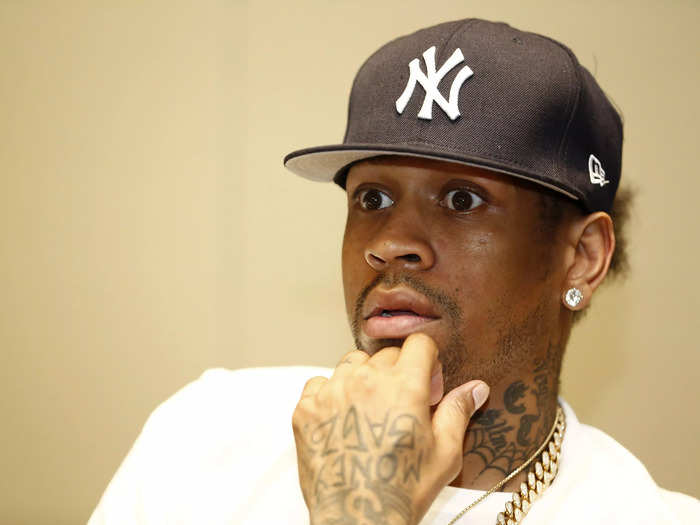
NBA Hall of Famer Allen Iverson opened up about his longtime cannabis use in a GQ feature in October, saying he did it infrequently during his NBA career but had highly memorable trips whenever he did get high.
Now Iverson sells his own strain of marijuana that's part of Harrington's Viola brand, called Iverson, which is indica-dominant, with a grape-candy aroma and hints of pine and mint. It is available for purchase in California.
Megan Rapinoe is an ambassador for her twin's CBD brand, but women athletes have less public leverage than male athletes to be vocal about using marijuana
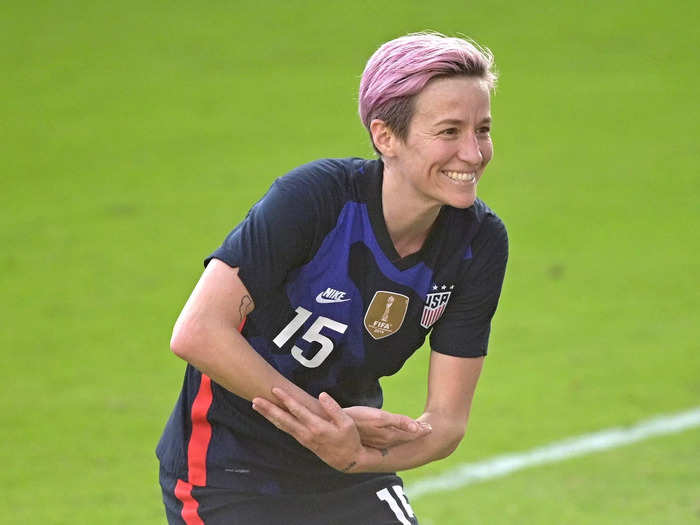
Stars in the WNBA, Women's MMA, and US Women's Soccer have been less vocal about cannabis use compared to their male counterparts.
The only prominent female athlete to be involved in the cannabis industry is US Women's Soccer star Megan Rapinoe, who, along with her wife and fellow player Sue Bird, is an ambassador for her twin sister's CBD brand, Mendi. Launched in August 2021, it does not include any psychoactive products. Mendi sells CBD gels and oils for recovery, which are available for purchase nationwide.
Sha'Carri Richardson is one of the few examples of a female athlete publicly admitting to using the drug, and she only did so in response to her banishment from the Tokyo Olympics. She had no prior public involvement with the cannabis industry.
On average, female athletes make roughly 80% less in base earnings than male athletes, with fewer endorsement and sponsorship opportunities, according to Forbes.
This discrepancy could leave female athletes with less freedom to publicly endorse something as divisive as marijuana use, and could put their reputations and livelihoods at a greater risk than it would for stars in the NBA and NFL.
READ MORE ARTICLES ON
Popular Right Now
Advertisement